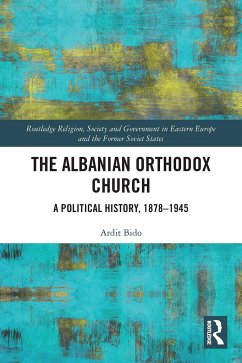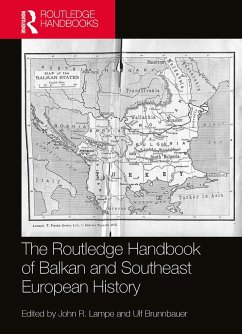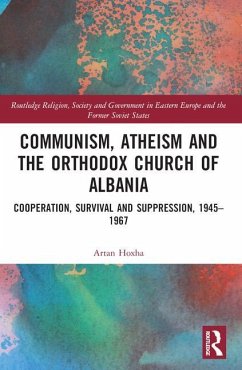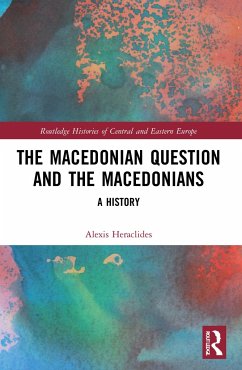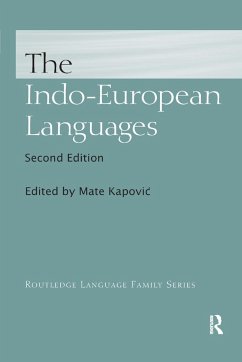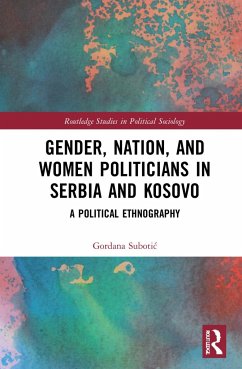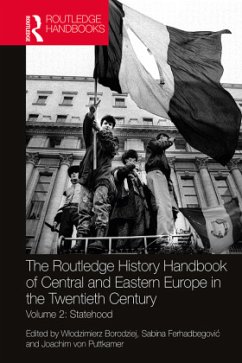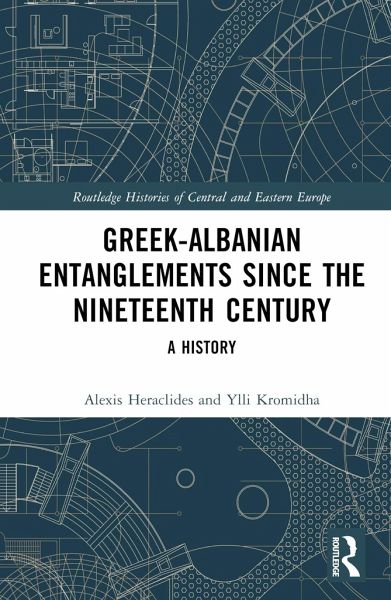
Greek-Albanian Entanglements since the Nineteenth Century
A History
Versandkostenfrei!
Versandfertig in 6-10 Tagen
154,99 €
inkl. MwSt.
Weitere Ausgaben:

PAYBACK Punkte
77 °P sammeln!
This book is a comprehensive study of more than 200 years of the shared and interconnected histories of Greek-Albanian relations, a field of inquiry that has not attracted the international scholarly attention it deserves.The book presents and analyses in detail topics including the contested borderland (1800-1912), the Greek Revolution (1821-1830) and Greek- Albanian entanglements during the Greek Revolution, Greek nationalism (identity and narrative), the Albanians (pre-modernism, belated nationalism, origin), the rise of Albanian nationalism, Albanian national identity and historical narrat...
This book is a comprehensive study of more than 200 years of the shared and interconnected histories of Greek-Albanian relations, a field of inquiry that has not attracted the international scholarly attention it deserves.
The book presents and analyses in detail topics including the contested borderland (1800-1912), the Greek Revolution (1821-1830) and Greek- Albanian entanglements during the Greek Revolution, Greek nationalism (identity and narrative), the Albanians (pre-modernism, belated nationalism, origin), the rise of Albanian nationalism, Albanian national identity and historical narrative, Greek-Albanian relations from the League of Prizren (1878) until Albania's declaration of independence (1912), Greek irredentism (the "Northern Epirus Question", 1912-1920) and Albania's precarious independence, Greek irredentism and Greek-Albanian relations (the "Northern Epirus Question", 1940-1971), the Greek minority in Albania, the Cham (Muslim Albanian) issue, the turbulent first part of the 1990s, the pending Greek-Albanian issues, and public opinion. It concludes with a road map for an eventual Albanian-Greek reconciliation.
This volume will interest scholars and students of Southeastern Europe (Balkans), international relations and history, political science and sociology. It will also be a valuable resource for diplomats, journalists, think tanks and other organizations and institutions involved in the Balkans Greek-Albanian relations.
The book presents and analyses in detail topics including the contested borderland (1800-1912), the Greek Revolution (1821-1830) and Greek- Albanian entanglements during the Greek Revolution, Greek nationalism (identity and narrative), the Albanians (pre-modernism, belated nationalism, origin), the rise of Albanian nationalism, Albanian national identity and historical narrative, Greek-Albanian relations from the League of Prizren (1878) until Albania's declaration of independence (1912), Greek irredentism (the "Northern Epirus Question", 1912-1920) and Albania's precarious independence, Greek irredentism and Greek-Albanian relations (the "Northern Epirus Question", 1940-1971), the Greek minority in Albania, the Cham (Muslim Albanian) issue, the turbulent first part of the 1990s, the pending Greek-Albanian issues, and public opinion. It concludes with a road map for an eventual Albanian-Greek reconciliation.
This volume will interest scholars and students of Southeastern Europe (Balkans), international relations and history, political science and sociology. It will also be a valuable resource for diplomats, journalists, think tanks and other organizations and institutions involved in the Balkans Greek-Albanian relations.




